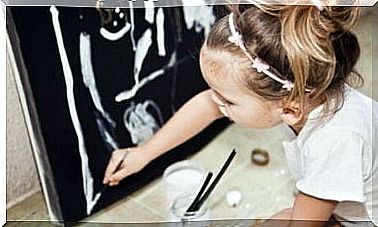The Importance Of Transmitting The Value Of Tolerance To Children – Being Parents

Teasing, bullying, disrespect and other negative manifestations are typical of children who are not tolerant.
Fortunately, parents have the ability to make better people through values education. Precisely, tolerance undoubtedly occupies a place among the qualities most needed in today’s world.
Oral transmission and example are the main resources available to families for the moral education of their children. School has a lot to do with it, but often it is not enough. The work continues at home.
So let’s see the importance of transmitting tolerance and the actions that we can implement to encourage it in children.
First of all, what exactly is tolerance?
Tolerance is the willingness to understand other points of view and realities that are different from our own. Therefore, it involves consideration, respect, commitment to others and a balanced social position.
However, it should not be confused with a weak attitude. It’s just about not condemning others and being condescending.
The difficulty in raising tolerant children is to get them to live without losing their identity, their desires and their interests.
Thus, during a common task or a game, the child’s friends do not have to tell him everything to do. The best way to balance this balance is to incorporate another concept: justice.
Let us be the parents of a fair education
It is normal that, given our role as parents, our children see us as a kind of “judge”. After all, parents tell children what is right and what is wrong. In addition, we reward the good and punish the action considered bad.

Therefore, the first way to teach tolerance is with your own judgment. In this sense, we must put into practice some fundamental actions:
- Challenge selfish and rude attitudes in their early social environments.
- Strengthen his personality and his courage in the face of injustice.
These moments of warm reflection are ideal for instilling a specific value in the child. In addition, we can answer its questions in a logical, explanatory way and without any external obligation.
Oral expression is essential to cultivate tolerance in the little ones
Conversations and incidents aren’t the only times to discuss these kinds of issues. Children’s stories are a great way to convey values.
Songs, stories, and even comics can help form a child’s moral substratum.
Another aspect to pay attention to is the questions that the little ones ask us. Things like “Why does this man have long hair?”, Or “Why does this child have a different color of skin?”.
These are the perfect times to educate them. Parents should be careful of what to say when responding.
Building a discourse in favor of diversity will always be a good way to address these questions. In turn, questioning mockery will build respectful men and women with a human quality.

Beware of prejudices
Children are a reflection of their parents and other family members. Logically, when we come up with straightforward, absolute, and prejudiced opinions, we teach them to do the same.
Although not many people believe it, children soak up everything around them like sponges.
Therefore, the first thing to educate tolerant children is to be tolerant. Parents should be an example of respect, empathy and good treatment, always avoiding unnecessary conflict.
Odious and vulgar expressions must remain in the parental room.
Even when joking, children can get the wrong message. That is why we should always explain that there are different points of view and devote time to this type of learning.
This is no small task: we teach children to live in society.
Watch out for the way you argue
Parents who are angry, dissatisfied, and overly strict usually breed intolerant children. Therefore, learning begins with self-control and the way we deal with the small incidents of everyday life.
If we are out of control, children will sense it and see it as normal behavior. In fact, to banish intolerance is to eliminate violence from family life.
The most important thing in tolerance is to understand ourselves down to our most human part.









